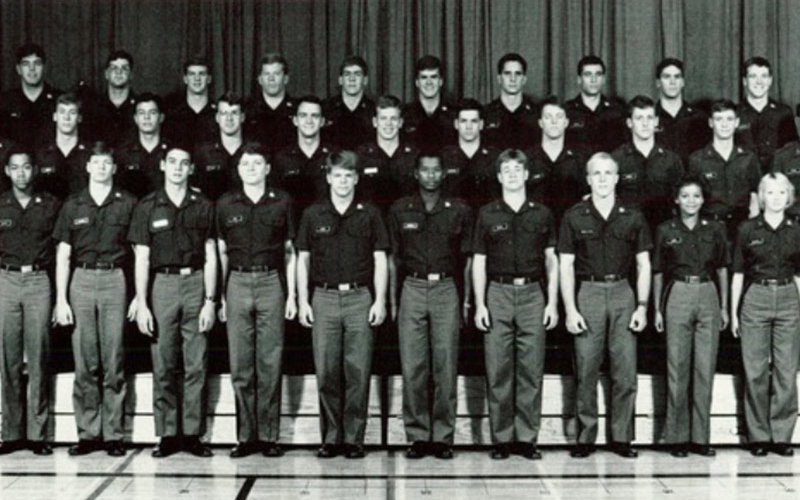
How does the presence of other women affect women’s progress in college or the workplace? Research findings on this topic have been mixed, and the answer seems to depend on the context and the relationship between the women.
Cal State Fullerton assistant professor of economics Nicholas Huntington-Klein, working with Elaina Rose of the University of Washington, happened across an unusual data set – yearbooks from the U.S. Military Academy at West Point – that could provide a window into how a woman’s peer set affects her progress, specifically within a male-dominated environment hostile to women.
When West Point first admitted females in 1976, there were very few of them, and they faced both controversy and a grueling cadet experience with exceptionally harsh treatment, according to the 2002 book, “Stronger Than Custom: West Point and the Admission of Women,” by Robert Lance Janda. Inside and outside the academy, the women had few opportunities to interact with anyone beyond their company. Since cadets were randomly assigned to their company, this was an opportunity for Huntington-Klein and Rose to study peer groups formed without selection bias and see how a woman in a company with other women progressed relative to one without female peers.
Looking at the classes of 1981 through 1984, Huntington-Klein and Rose found that on average, the probability of a female cadet advancing to the next year was 84.2 percent, versus 89.8 percent for men – a 5.6 percentage point progression gap. They also discovered that with each additional woman added to a company, the likelihood that women in that company would progress increased by 2.5 percent; adding two women essentially erased the gap relative to men. At the same time, the addition of women had no effect (positive or negative) on men in the group.
The researchers concluded that in a male-dominated situation unreceptive to women, having female peers is important for success. They caution, however, that their findings are context-specific and cannot be applied to every type of work environment. Huntington-Klein notes that in other environments, previous studies suggest that women should find good mentors instead.
The work was recently published in the Harvard Business Review, but Huntington-Klein is looking forward to delving even deeper into the topic, incorporating more dynamic aspects to it. They will use an expanded data set (West Point classes 1981 through 1987), account for changes over time, bring in the histories of individual cadets and explore how adding women changes the culture of each company.